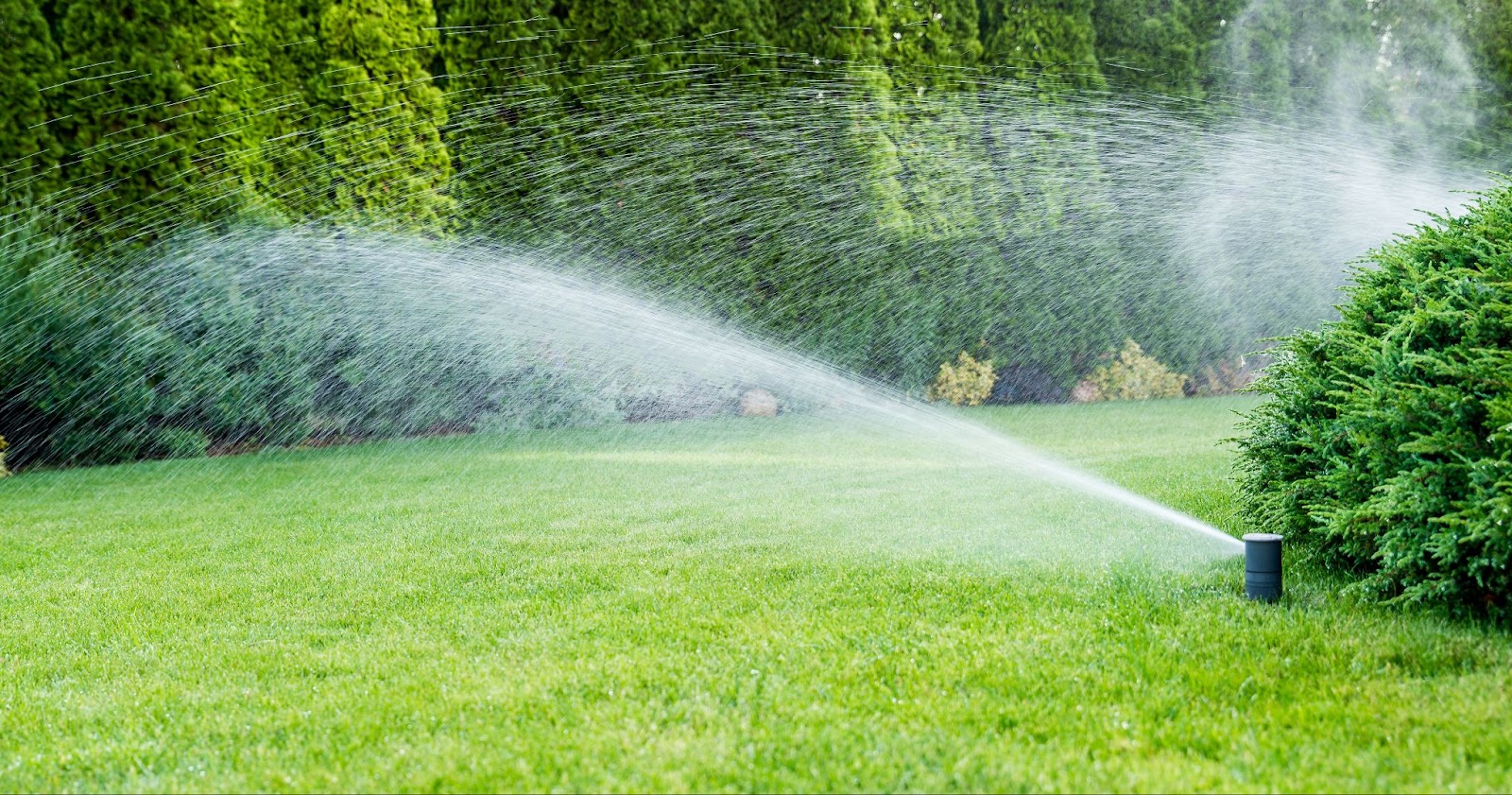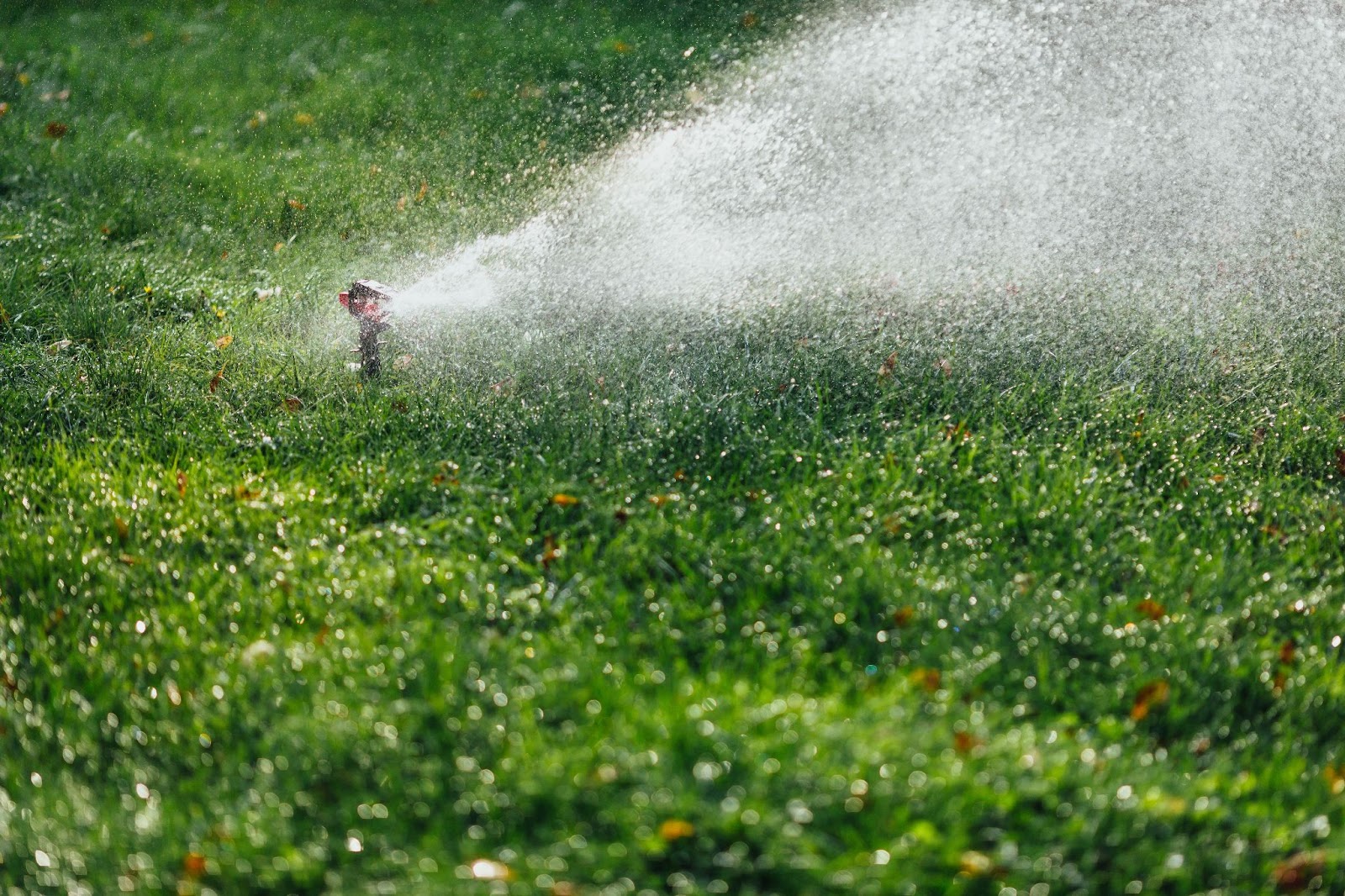Summer in Houston is – to put it mildly – intense. The weather conditions in Southeast Texas during the summer months make staying well-hydrated important. This goes both for you and your landscape.
Keeping your body hydrated is instinctual for most people; you know when you’re thirsty and you drink water as needed. Keeping your lawn hydrated, on the other hand, requires a little know-how to achieve the ideal balance. Not watering at all will leave you with grass that is thin and dying, while watering too much or at the wrong times will lead to root rot and fungal disease. Your lawn has ways to tell you when it’s thirsty or when it’s had too much water, but you have to know what to look for.
Signs Your Lawn is too Dry
If you walk across your lawn and your footprints remain in the grass behind you, this is a symptom of drought stress. Other symptoms include discolored grass, wilted grass, or the blades rolling or folding. You may also start to see brown patches.
Signs of Overwatering
Overwatering or watering at the wrong time of day can result in root rot or fungal infection. With root rot, the roots will turn dark brown or shiny black, and the grass will turn a yellowish or lime green color before dying off and turning brown. If your lawn gets infected with fungus, you will see dead-looking patches that grow and spread. You may also see threadlike or a powdery coating on the blades of grass. Both of these conditions will kill your turf grass.
How do I find the right balance for watering my lawn?
There are multiple factors that determine the best irrigation schedule for your lawn, including the type of grass and the type of soil you have. Soil with a high clay or loam content drains slowly and retains water, so you will not need to water it as often. Sandy soil absorbs water quickly and drains well but doesn’t retain water very well. This means that if your soil contains a lot of sand, you will need to adjust your irrigation schedule to make up for this. By adapting your watering practices to the specific soil in your yard, you can ensure that the water you use goes to your landscape and not down the drain.
It is best to consult an expert like Archer Services. We can perform a soil analysis and determine the perfect irrigation schedule for your yard, as well as prescribe the correct fertilizer to keep your lawn healthy.
Learn how to know how much and when to water your lawn.
The Basics of Lawn Irrigation
An irrigation system is the best and most efficient way to keep your lawn watered during the warmer months. Houston has a long growing season that stretches from April to September. An irrigation system will allow you to schedule the correct amount of water at the correct time of day and will save you money by reducing water waste.
In the cooler months between October and March, we recommend turning off your irrigation system and watering by hand needed, usually once a week.
Proper irrigation of your lawn helps to maintain a healthy root system and keeps your lawn looking lush and green. With the right amount of water at the right intervals, you can maintain the look you want. Your sprinkler system will help you keep up with proper lawn irrigation.

It’s also important to know and understand that different grass species have varying watering requirements. If you need help, a lawn specialist like Archer Lawn Services can help you determine the species you have in your Houston-area lawn. They can also help you understand how different factors like the amount of sunlight, rainfall, soil type, and temperature also impact the watering needs of your lawn.
Get A Yearly Calendar of When to Water From Archer Lawn Services
At Archer Services, we provide our Houston-area customers with a yearly irrigation schedule that outlines when and how long to water your lawn for optimal results. Our team of experts has extensive knowledge of Houston’s weather patterns and soil types, ensuring that your irrigation schedule is tailored specifically to the needs of your lawn. If you have any questions or concerns about your irrigation schedule, please don’t hesitate to contact us.

